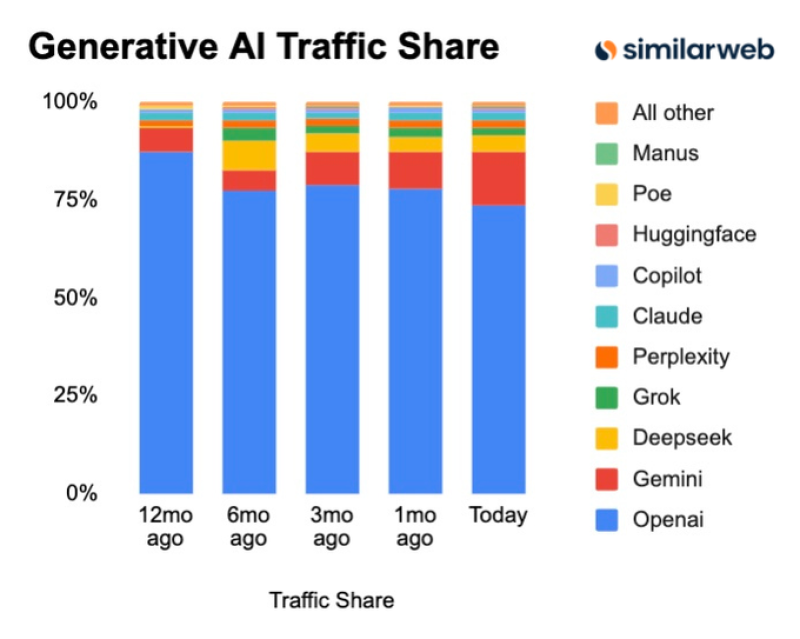The generative AI market is shifting. Recent Similarweb data shows that while ChatGPT remains dominant, its market share is declining as competitors gain ground. Google's Gemini has emerged as the strongest challenger, more than doubling its presence in just one year.
ChatGPT: Still Leading, but Slipping
In a recent update, Similarweb highlighted ChatGPT commanded 87.1% of global traffic a year ago. Today, that's dropped to 73.8%. While still the clear leader, this decline signals that users are actively exploring alternatives and finding value in competing platforms.

Google's Gemini jumped from 6.5% to 13.7% market share in twelve months, positioning itself firmly as the number two player. This growth stems from deep integration across Google's ecosystem including Android, Workspace, and Search; the launch of powerful new models like Gemini Pro and 1.5; and Google's massive global distribution network.
Other Players in the Mix
Beyond the top two, smaller competitors are carving out niches. DeepSeek peaked at 7.6% six months ago but has cooled to 3.9%. Perplexity and Grok have both reached 2.0%, showing steady growth. Claude maintains 1.8% with a focus on enterprise safety, while Microsoft Copilot holds 1.2% through Office integration.
The data reveals two key trends: the market is fragmenting as users explore multiple platforms, and strong challengers with the right technology and distribution can rapidly capture share. ChatGPT's monopoly is fading, replaced by a more competitive landscape.
The question for 2026 isn't whether ChatGPT will stay on top, but how much ground it will lose. With Gemini expanding aggressively and niche players finding their audiences, the generative AI market is becoming truly competitive for the first time.
 Peter Smith
Peter Smith

 Peter Smith
Peter Smith


